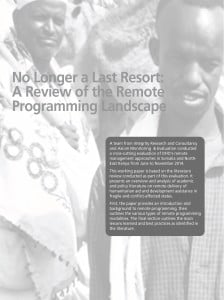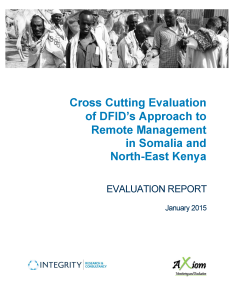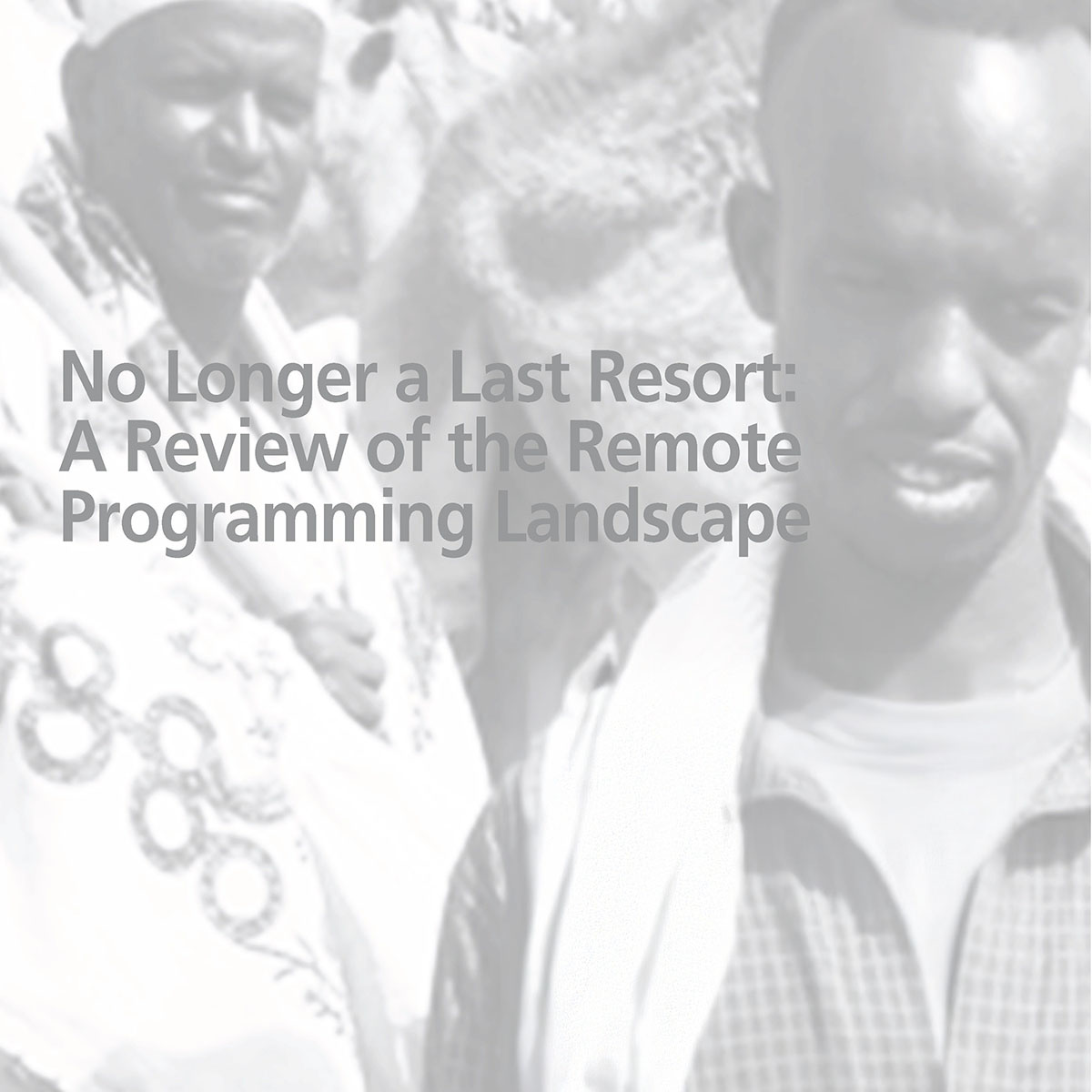Integrity Report: Cross-cutting evaluation of DFID’s remote management practices in Somalia and North-East Kenya

Remote programming is not a new topic in humanitarian and development circles. As more assistance is delivered in high-risk contexts affected by conflict and fragility, donors and implementers have called for the development of policy frameworks, coordination and more research into remote programming in complex environments.
DFID commissioned Integrity in June 2014 to conduct an independent process evaluation of the remote programme management (RPM) practices adopted by DFID and its implementing partners in Kenya and Somalia. Integrity worked in partnership with Axiom Monitoring and Evaluation to map existing practices and gather evidence to inform recommendations on appropriate remote management approaches and tools, including third-party monitoring, for its programming in these locations.
The evaluation was informed by qualitative data collected through key informant interviews with DFID staff, international implementing partners and third-party monitors, and focus group discussions with project beneficiaries in South-Central Somalia, Puntland, Somaliland and North-East Kenya.
The findings and recommendations presented in the report are intended to feed into a wider discussion about remote management in other challenging contexts where DFID and other donors operate. The final evaluation report can be accessed  here.
here.
As part of the evaluation, Integrity also conducted a comprehensive desk review to inform the design of the evaluation, which has been compiled into a working paper that presents an overview and analysis of academic and policy literature on the global remote programming landscape.
Both reports can also be accessed via DFID’s website.
